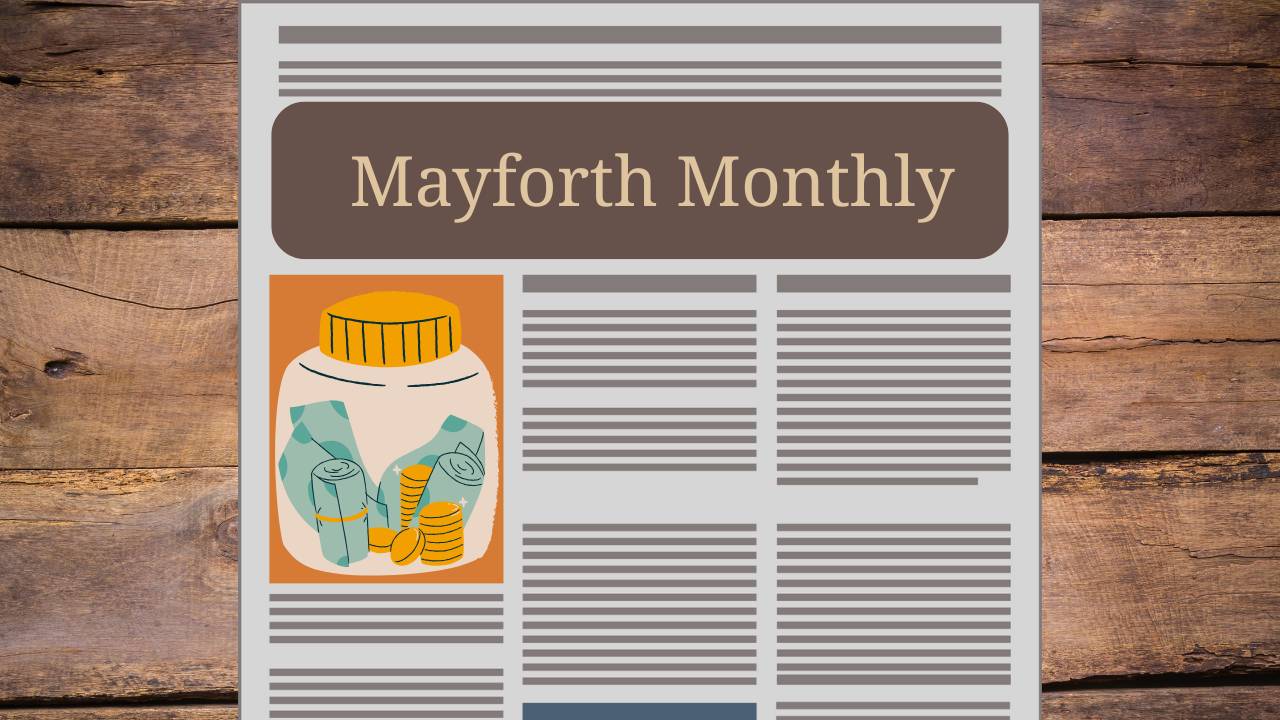💸 7 Habits That Are Secretly Keeping You Broke — And What to Do Instead
Aug 06, 2025
Break the cycle. Find peace. Build a life of abundance.
Have you ever reached the end of the month wondering, “Where did all my money go?”
You’re not alone. Many people genuinely want to steward their finances well, but they’re stuck in habits that drain their wallets — without even realizing it. If you’re tired of feeling behind, let’s uncover 7 things that could be keeping you broke and what you can do about them.
1. Living on Last Month’s Paycheck — Without a Plan
Example:
You get paid, cover your bills, grab groceries, and treat yourself “a little” — but by week 3, you're stretched thin.
Why It’s a Problem:
Without a budget, you’re spending reactively. It feels like survival mode.
Solution:
✅ Create a zero-based budget where every dollar has a job.
✅ Use a budget app, a spreadsheet, or even a printable worksheet.
✅ Give yourself a “fun money” category — in cash or track it weekly with an accountability partner— to stay realistic and in control.
2. Upgrading Your Lifestyle Too Quickly
Example:
You got a raise and immediately leased a newer car, bought a new wardrobe, purchased that game you have been eyeing, upgraded your phone, and/or added streaming services.
Why It’s a Problem:
This is called lifestyle creep — where your spending grows as your income does, leaving you just as broke as before.
Solution:
✅ Practice gratitude over upgrades.
✅ Keep your expenses the same when your income increases — and funnel the difference into savings, debt payoff, or giving.
✅ Follow the 70/20/10 rule: 70% living, 20% saving, 10% giving.
3. Financing Everything
Example:
You have a payment for your car, furniture, phone, gym membership, medical bills, and a “buy now, pay later” clothing order.
Why It’s a Problem:
Monthly payments feel small — but they add up and steal your future income.
Solution:
✅ Avoid financing unless it’s a mortgage or a business investment.
✅ Pay cash for smaller items — even if that means waiting.
✅ If you’ve already financed, create a snowball or avalanche debt payoff plan.
4. Grocery Spending Without a Plan
Example:
You go to the store without a list, grab dinner ingredients every night, and throw away food you forgot about.
Why It’s a Problem:
Groceries are one of the most flexible budget categories — and one of the easiest to overspend.
Solution:
✅ Meal plan each week and shop your pantry first.
✅ Use a grocery list and order online for curbside pickup to avoid impulse buys.
✅ Try themed weekly meals: Meatless Monday, Taco Tuesday, Wild Wednesday, Tried and True Thursday, Leftover Friday, Savory Saturday, and Snacking Sunday.
5. Not Tracking Small Expenses
Example:
A $6 coffee here, a $12 Target run there, a $4 app download — they don’t seem like much.
Why It’s a Problem:
These “tiny leaks” in your budget add up to hundreds of dollars a month.
Solution:
✅ Track every expense for 30 days. Awareness changes everything.
✅ Use cash envelopes or prepaid cards for categories you tend to overspend in.
✅ Set app store and online shopping limits on your phone.
6. Using Credit Cards for Points Without Paying the Balance
Example:
You justify big spending with points or cashback — but can’t pay it off in full each month.
Why It’s a Problem:
The interest you pay outweighs the perks, and you get trapped in a debt cycle.
Solution:
✅ If you do use a credit card, treat it like a debit card and pay it off monthly.
✅ Consider switching to cash or debit until you’ve built consistent financial discipline.
✅ Cut the card if it’s too tempting.
7. Not Having an Emergency Fund
Example:
Your car breaks down, your kid gets sick, or a job layoff hits — and you have to rely on a credit card.
Why It’s a Problem:
Without a cushion, every crisis becomes a financial setback.
Solution:
✅ Start with a starter emergency fund of $1,000 (see my free course if you need help with this).
✅ Build toward 3–6 months of expenses rainy day fund saved in a separate savings account.
✅ Make it automatic — set a small amount to transfer each payday.
🌱 Bonus: The Faith-Based Financial Mindset Shift
Sometimes we feel like we’re bad with money — when really, we’ve just never been taught how to steward it wisely.
“Whoever can be trusted with very little can also be trusted with much.” — Luke 16:10
Financial peace isn’t just about numbers. It’s about aligning your spending with your values, gaining control, and freeing yourself to be generous and joyful.
✨ Final Thoughts
You’re not behind. You’re just getting started.
If any of these habits sound familiar, don’t feel ashamed — feel empowered. Small changes lead to massive transformation. God cares about every area of your life — and that includes your finances.
💌 Want to take the next step?
Download my free Faith-Based Budget Starter Kit to begin your journey toward financial peace — with a printable worksheet, budgeting template, and giving tracker included.
Need help with savings?
Stay connected with news and updates!
Join our mailing list to receive the latest news and updates from our team.
Don't worry, your information will not be shared.
We hate SPAM. We will never sell your information, for any reason.
